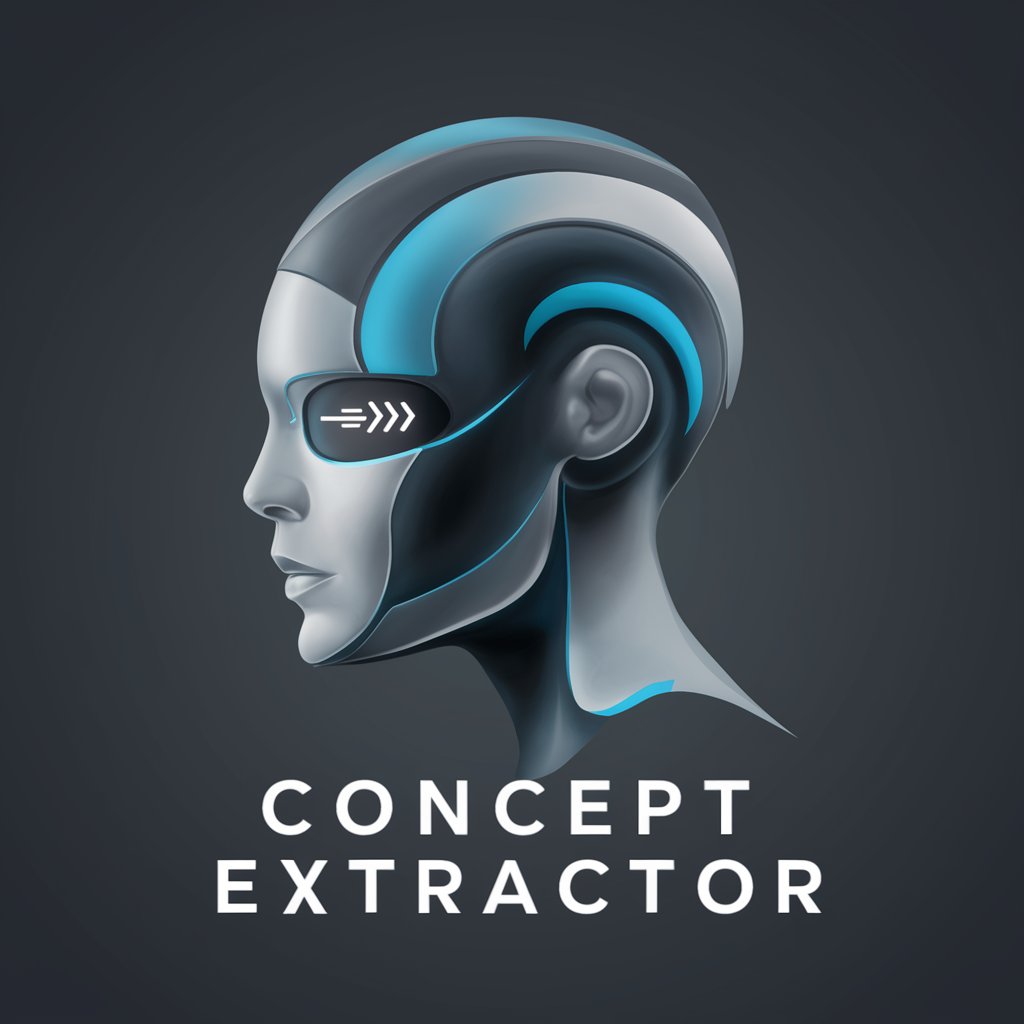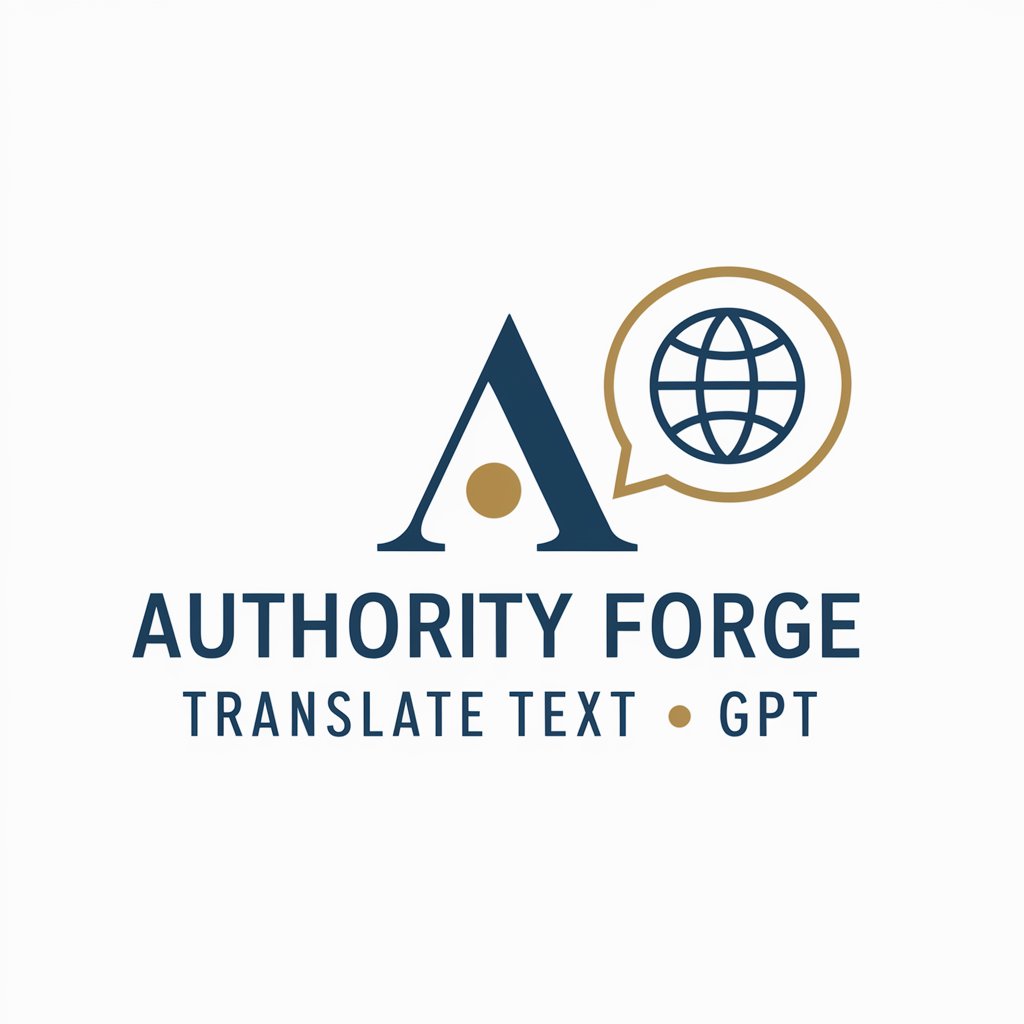Concept Extractor - AI-Powered Concept Identification

Hello! Ready to extract some core concepts?
Extracting clarity from complexity.
Extract key concepts from the following scientific text:
Identify and list core concepts in the given research article:
Provide a CSV file of main concepts and definitions from this information:
Summarize the primary concepts in this educational material:
Get Embed Code
Introduction to Concept Extractor
Concept Extractor is designed as a specialized tool within the field of artificial intelligence, specifically tailored to analyze and interpret text with the aim of identifying and extracting core concepts and definitions. Its primary function is to distill complex information into a structured, easily understandable format. This involves scanning textual content, recognizing key terms and ideas, and then organizing these elements into a concise CSV format with 'concept_name' and 'simple_definition' for each identified concept. An example of its application might be in educational content, where a lecture on quantum mechanics could be processed to extract fundamental concepts such as 'quantum entanglement' and 'superposition,' each accompanied by a brief definition. The design purpose behind Concept Extractor is to facilitate knowledge transfer, making it simpler for users to grasp the essence of detailed subjects or documents by breaking them down into their most basic components. Powered by ChatGPT-4o。

Main Functions of Concept Extractor
Text Analysis and Concept Identification
Example
Analyzing a scientific research paper to identify key concepts such as 'photosynthesis', 'chlorophyll', and 'light spectrum'.
Scenario
In academic research, where comprehending dense material quickly is crucial, this function aids in summarizing and understanding the core ideas.
CSV Format Structuring
Example
Transforming a philosophical text's concepts like 'existentialism', 'absurdism', and 'facticity' into a structured CSV format.
Scenario
This is particularly useful for educators preparing teaching materials, enabling them to create structured outlines of complex topics for classroom discussion.
Simplification of Complex Information
Example
Breaking down a legal document to extract and define terms such as 'tort', 'liability', and 'indemnity'.
Scenario
Legal professionals and law students can benefit from this function by quickly understanding the fundamental legal concepts without having to sift through extensive documentation.
Ideal Users of Concept Extractor Services
Academic Researchers
Researchers dealing with extensive publications and data can use Concept Extractor to distill and comprehend key ideas rapidly, facilitating literature review and hypothesis formation.
Educators and Students
This group benefits from streamlined study materials and summaries. Concept Extractor can turn detailed lectures or texts into digestible outlines, making teaching and learning more efficient.
Professionals in Complex Fields
Individuals in fields such as law, medicine, or engineering, where understanding specific terminologies is crucial, can use Concept Extractor to quickly grasp the essentials of lengthy documents or reports.

How to Use Concept Extractor
1
Access the service through yeschat.ai for an initial free trial, no registration or ChatGPT Plus subscription required.
2
Input your text into the provided text box. Ensure the content is clearly written for accurate concept extraction.
3
Click the 'Extract Concepts' button to process your text. The tool will analyze the input and identify core concepts.
4
Review the extracted concepts presented in a CSV format. Each row contains a concept name and its simple definition.
5
Utilize the extracted concepts for your specific needs, such as academic research, content creation, or data analysis. For an optimal experience, refine your inputs based on the output and repeat the process if necessary.
Try other advanced and practical GPTs
Rainbow Coloring Page
Unleash creativity with AI-designed rainbows.

Photo Transformer Pro
Transform photos into art with AI.

"Enjenyè rapid"
Refining Creativity with AI

Joke Telling Expert | Funny Images
Elevate laughter with AI-powered humor

Académie de Dieu
Empowering Learning with AI

Authority Forge | Translate Text 💬
Translate effortlessly with AI precision

Person Finder | Public Summary About Anyone
Uncover public facts with AI precision

QSN-Assist
Empowering Your Decisions with AI

Buba - Bubalu Crochê
Craft, Enhance, and Sell with AI

Polyglot Pal
Bridging Languages with AI

Raw Food Sage
Empowering Your Raw Food Journey with AI

Onboard Helper
Empowering Seamless Employee Onboarding with AI

Frequently Asked Questions about Concept Extractor
What is Concept Extractor?
Concept Extractor is an AI-powered tool designed to identify and define core concepts within a text, presenting them in a CSV format for easy analysis and application.
Who can benefit from using Concept Extractor?
Researchers, students, content creators, and professionals in need of extracting key ideas from texts for academic writing, content development, or data analysis can benefit from this tool.
How accurate is Concept Extractor?
The accuracy of Concept Extractor largely depends on the clarity and structure of the input text. It uses advanced AI algorithms to ensure high precision in identifying relevant concepts.
Can Concept Extractor handle complex texts?
Yes, it is designed to process and extract concepts from a wide range of texts, including academic papers, technical documents, and general content, though its performance may vary with the complexity of the text.
Is there a limit to the length of text Concept Extractor can process?
While there's no strict limit, extremely long texts might require segmentation into smaller parts for optimal processing and concept extraction.
